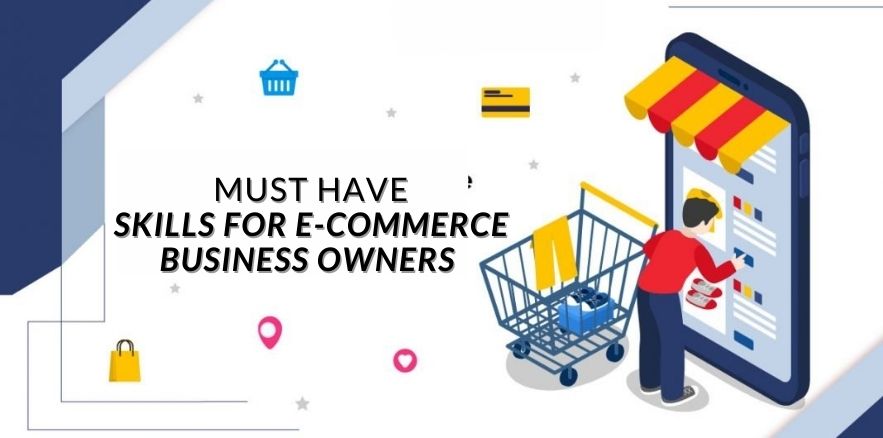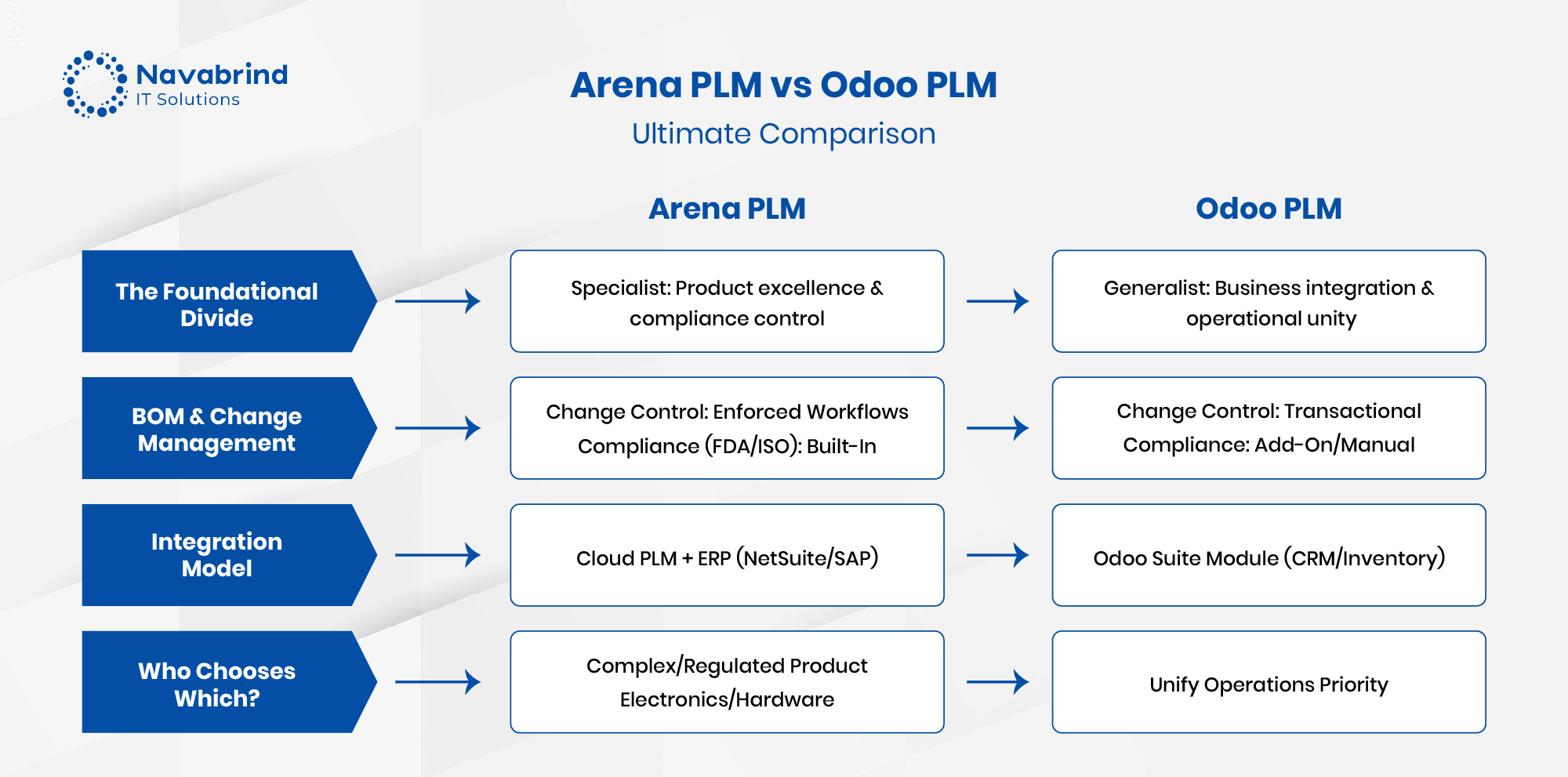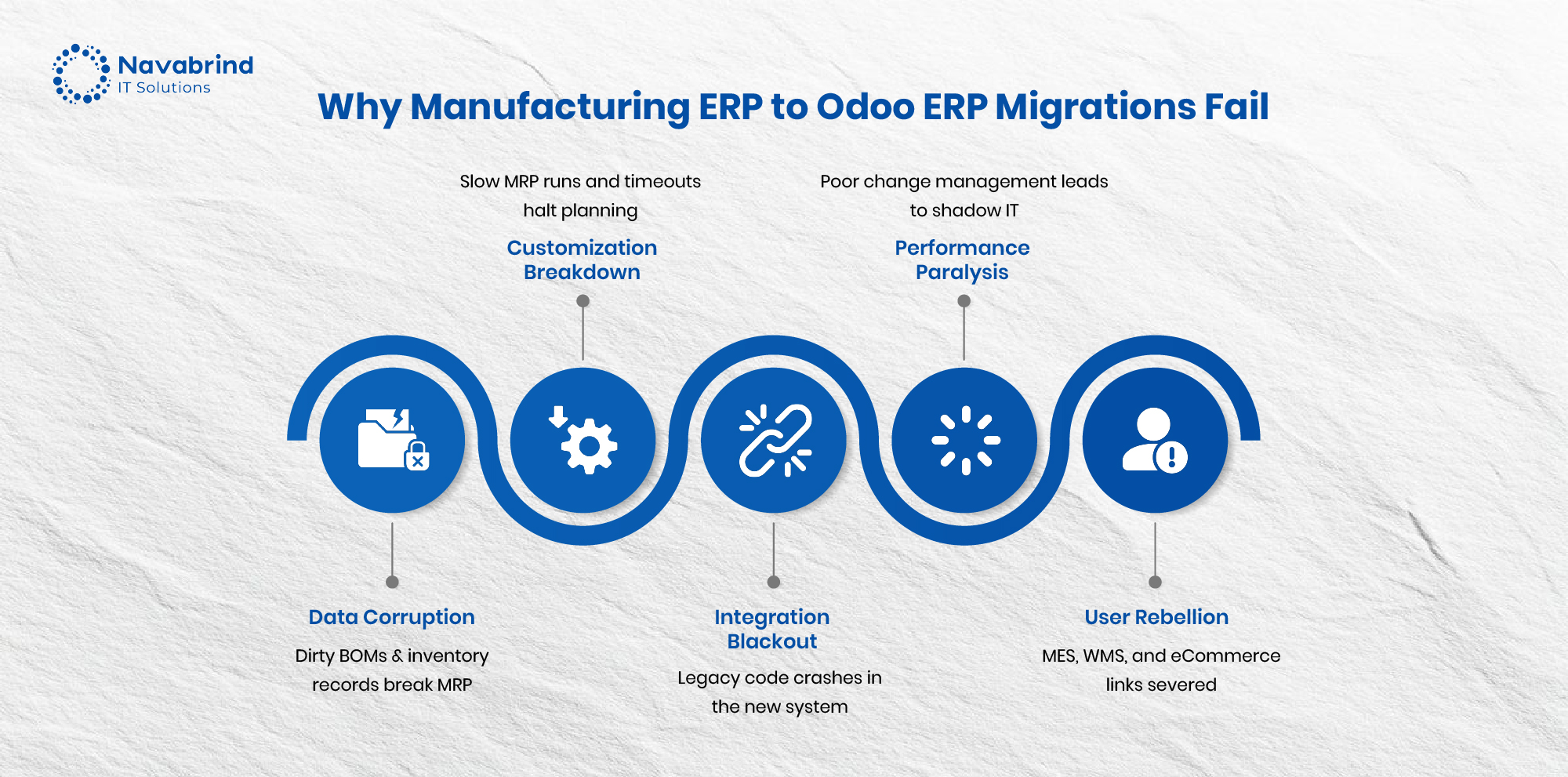List of Must-Have Skills for E-commerce Business Owners
- April 7, 2025
- Posted by: Tony
- Categories: Blog, E-Commerce Development

The growth of e-commerce businesses has been exponential over the last few years. Online shopping has become more prevalent, and the convenience it offers has made it a preferred choice for customers.
As an e-commerce business owner, it is essential to possess specific skills that are crucial to the success of your business.
This article will highlight the skills that you need to possess as an e-commerce business owner.
Understanding the Basics of E-commerce
Before diving into the skills required to operate an e-commerce business, it is crucial to understand the basics of e-commerce.
In essence, there are 3 different types of e-commerce business models, including B2B (business-to-business), B2C (business-to-consumer), and C2C (consumer-to-consumer).
As an e-commerce business owner, you must determine the type of e-commerce business model that aligns with your business goals and objectives.
When starting an e-commerce business, certain factors need to be considered.
You need to have a business plan that outlines your business goals, target audience, and marketing strategies. It is also essential to research your competition and identify their strengths and weaknesses.
Furthermore, you need to determine the best platform to use for your e-commerce business, such as Shopify or WooCommerce.
Technical Skills Required for an E-commerce Business Owner
Knowledge of Web Design and Development
As an e-commerce business owner, you need to have a basic understanding of web design and development.
Your e-commerce website needs to have an appealing design that is user-friendly and easy to navigate. It is important to use high-quality images, clear product descriptions, and easy checkout procedures to provide an excellent customer experience.
A well-designed website will attract potential customers and increase your chances of making a sale.
Of course, You can hire a professional web designer to create an attractive and functional e-commerce website. But, having the knowledge of designing and developing a website will help convey your ideas and thoughts smoothly and get the desired outcome.
Understanding of Content Management Systems (CMS)
A content management system (CMS) is software used to manage the content of your e-commerce website. The CMS enables you to create, edit, and publish content, such as product descriptions, blog posts, and videos.
It is crucial to have a good understanding of CMS platforms like WordPress and Magento to manage your e-commerce website effectively.
You should also have knowledge of website maintenance and security to ensure that your website is always up-to-date and secure from potential hackers.
Familiarity with Online Payment Systems
As an e-commerce business owner, you need to understand online payment systems such as PayPal and Stripe. You should be familiar with the payment gateway and merchant account requirements to ensure smooth transactions with your customers.
You can also offer alternative payment methods such as mobile payments, cryptocurrency, and e-wallets to provide convenience for your customers and increase your sales.
Ability to Manage and Analyze Data
Data management and analysis are critical skills for an e-commerce business owner. You need to understand how to collect, analyze, and interpret data such as website traffic, customer behavior, and sales data.
You can use this information to make informed decisions about your e-commerce business and develop effective marketing strategies.
You can use tools like Google Analytics to track your website traffic and gain insights into your customers’ behavior. This can help you identify areas that need improvement and develop strategies to increase your sales.
You can also read our blog post,Omnichannel: The Powerful New Direction of E-Commerce>>
Marketing and Sales Skills for an E-commerce Business Owner
As an e-commerce business owner, you need to have strong marketing and sales skills to attract potential customers and increase your sales.
Knowledge of Online Marketing Techniques
Online marketing techniques, such as email marketing, social media marketing, and affiliate marketing, are critical for the success of your e-commerce business.
You need to have a good understanding of these techniques and use them effectively to promote your products and services.
Email marketing involves sending emails to your customers to inform them of your products and services, promotions, and discounts.
Social media marketing involves using social media platforms like Facebook, Instagram, and Twitter to promote your business and connect with your customers.
Affiliate marketing involves partnering with other businesses to promote each other’s products and services and earn a commission on sales.
Understanding of Search Engine Optimization (SEO)
Search Engine Optimization (SEO) is the process of optimizing your website to rank higher in search engine results pages (SERPs). You need to have a good understanding of SEO to increase your website’s visibility and attract more traffic to your site.
SEO involves using keywords, meta tags, and backlinks to optimize your website’s content for search engines. You can also use local SEO techniques to target customers in specific locations and increase your local visibility.
Ability to Create and Implement Effective Marketing Strategies
To succeed in the e-commerce industry, you need to develop effective marketing strategies that align with your business goals and objectives.
You need to identify your target audience, understand their needs and preferences, and create marketing campaigns that resonate with them.
You can use various marketing techniques such as content marketing, social media marketing, and paid advertising to promote your products and services.
It is important to measure the effectiveness of your marketing campaigns and make necessary adjustments to improve your results.
Skill to Communicate and Connect with Customers
Effective communication and connection with your customers are critical for the success of your e-commerce business.
You need to have good communication skills to provide excellent customer service and build long-term relationships with your customers.
You can use various communication channels such as email, social media, and live chat to communicate with your customers and address their concerns.
It is also important to gather feedback from your customers to understand their needs and preferences and improve your products and services.
Management and Organization skills for an e-commerce business owner
Running a successful e-commerce business requires not only technical and marketing skills but also strong management and organizational skills.
As an e-commerce business owner, you need to be able to manage resources, maintain a smooth supply chain, and have a good understanding of financial management and budgeting.
Ability to Manage Resources Effectively
As your business grows, you will need to manage your resources efficiently to ensure that you can meet the needs of your customers without running into cash flow problems. This requires you to have a good understanding of your inventory, sales, and cash flow.
To manage your resources effectively, you need to have a system in place to track your inventory, sales, and expenses. You should also be able to anticipate future demand and adjust your inventory levels accordingly.
A good inventory management system will help you keep track of your stock levels and ensure that you have enough inventory to meet your customers’ demands.
Knowledge of Inventory Management and Supply Chain
You need to have a good understanding of the supply chain and be able to manage it effectively to ensure that your business runs smoothly.
This means that you need to clearly understand the flow of goods and services, from the production stage to the final delivery to the customer.
Effective inventory management will help you optimize your inventory levels and minimize your carrying costs. This requires you to have a good understanding of your sales and demand patterns, as well as your lead times and supplier performance.
You should also be able to monitor your inventory levels and adjust them accordingly to avoid stockouts or overstocks.
Strong Organizational Skills
Strong organizational skills are also crucial for an e-commerce business owner. You need to be able to manage your time effectively and prioritize your tasks to ensure that you can meet your business objectives.
This means that you need to have a system in place to track your tasks and manage your schedule.
You should also be able to delegate tasks effectively and manage your team to ensure that everyone is working towards the same goals. This requires you to have good communication skills and the ability to motivate and inspire your team.
A good team will help you achieve your business objectives faster and more efficiently.
Understanding of Financial Management and Budgeting
Finally, you need to be able to manage your finances effectively to ensure that you can invest in your business and achieve your growth objectives. This requires you to have a good understanding of your financial statements, cash flow, and budgeting.
You should also be able to monitor your expenses and revenue and adjust your budget accordingly to ensure that you can maintain a healthy cash flow.
A good financial management system will help you track your expenses and revenue and provide you with the data you need to make informed financial decisions.
Customer Service Skills for an E-commerce Business Owner
Ability to Provide Excellent Customer Service
Your customers are the lifeblood of your business, and without them, you cannot succeed. You need to ensure that your customers are satisfied with your products and services and that their needs are met.
To provide excellent customer service, you need to be responsive to your customers’ needs and concerns. You should be available to answer their questions and address their issues in a timely and professional manner.
This requires you to have a good understanding of your customer’s preferences and expectations and the ability to adapt to their needs.
Communication and Interpersonal Skills
As an E-commerce business owner, you need to be able to communicate effectively with your customers and team members to ensure that everyone is working towards the same goals.
You should be able to listen actively to your customers and respond to their concerns in a compassionate and professional manner.
Effective communication also requires you to have good interpersonal skills. You should be able to build relationships with your customers and team members and establish trust and rapport.
This requires you to have empathy and emotional intelligence and the ability to understand and respond to the needs and feelings of others.
Effective Problem-Solving Skills
Along the way, you will encounter various challenges and obstacles in your business, and you need to be able to solve them quickly and efficiently. This requires you to have good analytical and critical thinking skills and the ability to come up with creative solutions to complex problems.
You should also be able to prioritize your tasks and focus on the most critical issues that need to be resolved. This requires you to have good time management skills and the ability to work under pressure.
Ability to Handle and Resolve Conflicts
Conflict resolution is another critical customer service skill for an e-commerce business owner. You will encounter various conflicts and disagreements with your customers and team members, and you need to be able to handle them effectively.
This requires you to have good conflict-resolution skills and the ability to negotiate and compromise when necessary.
You should also be able to remain calm and composed in stressful situations and maintain a professional demeanor at all times.
Conclusion
In conclusion, as an e-commerce business owner, you need to possess a variety of skills to succeed in the industry.
You need to be able to manage your resources effectively, maintain a smooth supply chain, and have a good understanding of financial management and budgeting.
Additionally, you need to have strong marketing and sales skills, strong organizational skills, and the ability to provide excellent customer service.
Continuous learning and improvement are also essential in the e-commerce business industry. The industry is constantly evolving, and you need to stay up-to-date with the latest trends and technologies to remain competitive.
By continuously learning and improving your skills, you can grow your e-commerce business and achieve your long-term objectives.
Related Articles
-
Post
Arena PLM vs. Odoo PLM: Choosing the Right Tool for Your Manufacturing Business
Arena PLM vs. Odoo PLM: Choosing the Right Tool for Your Manufacturing Business January 30, 2026 Posted by: Tony Category: Uncategorized No Comments The PLM Decision: Choosing Your Core System A Product Lifecycle Management (PLM) module governs a products journey from concept to final product retirement, controlling data like designs, bills of materials, and change -
Post
From Manufacturing ERP to Odoo: How to Fix Migration Errors and Choose the Right Migration Partner in Europe and the US
From Manufacturing ERP to Odoo: How to Fix Migration Errors and Choose the Right Migration Partner in Europe and the US January 27, 2026 Posted by: Tony Categories: Blog, Odoo No Comments Why Odoo Migration Goes Wrong Legacy systems house decades of operational logic, custom workflows, and critical data. Attempting a “lift-and-shift” without a strategic -
Post
AI Agents in Odoo ERP: Transforming eCommerce Order Fulfillment for US Retailers
AI Agents in Odoo ERP: Transforming eCommerce Order Fulfillment for US Retailers January 7, 2026 Posted by: Tony Categories: AI, Blog No Comments The US Retailer’s Dilemma in the Age of Instant Gratification The friction created by disconnected systems and manual processes contradicts the gratification consumers demand. This operational lag not only erodes margins but
How can we help you?
Get in touch with a solutions consultant that can share best practices and help solve specific challenges.







